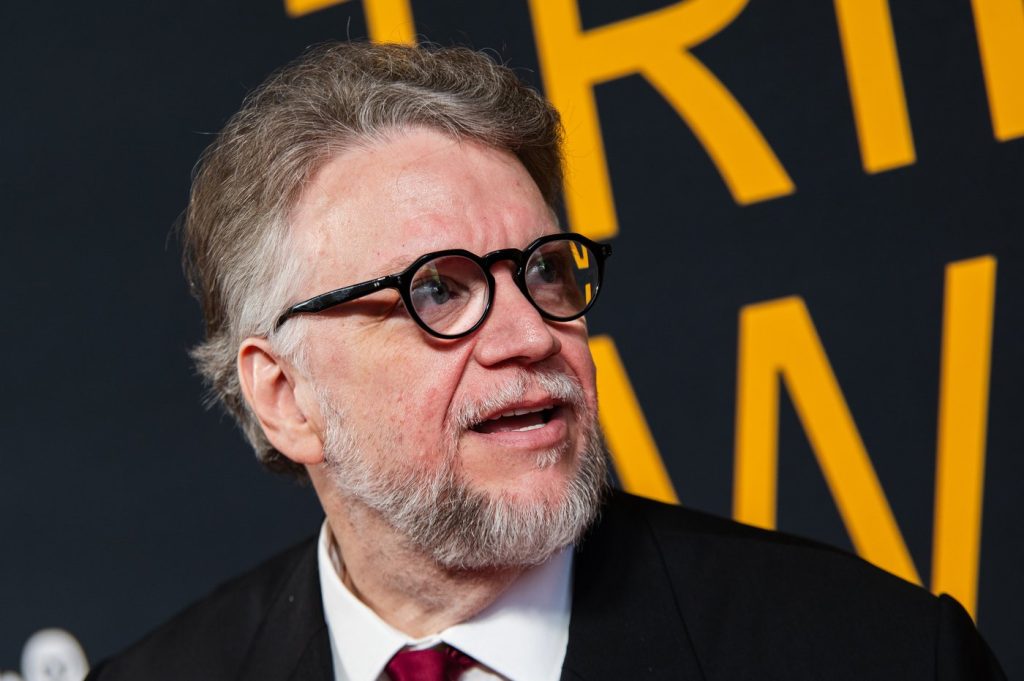TORONTO - Guillermo del Toro first encountered "Frankenstein" at the tender age of seven, and in the creature’s tortured expression, he found a reflection of himself. Growing up in Guadalajara, Mexico, del Toro often watched horror films on a local television channel that aired them continuously on Sundays. It was during this time that he stumbled across the 1931 adaptation of "Frankenstein," with Boris Karloff’s iconic performance making a profound impression on him.
“I identified with him completely,” del Toro recalls as he reflects on the moment that ignited his lifelong fascination with the story. He distinctly remembers thinking, "That’s how it feels to be me on the inside – that creature that is out of place, nobody is completely happy with him." This early connection to the character fueled his ambition, leading him to read Mary Shelley’s novel at age eleven. "I said, 'What is this? The book is completely different from the movie,' and I decided, 'I can do that movie!' Youthful exuberance, you know? It only took about 40 years."
Del Toro's adaptation of "Frankenstein" is a $120-million epic filmed in Toronto. At 61, he reflects that he is glad he didn't undertake the project sooner. “If I’d made it when I was younger, it would have just been the gripes of a son toward a father,” he explains regarding the deep emotional themes he now explores in his adaptation, which is set to hit theaters on Friday and stream on Netflix on November 7.
Del Toro's "Frankenstein" delves into the intricacies of parenthood, driven by his own experiences raising two daughters, now adults. “Now it's about the desire for the forgiveness of a father who was originally a son and who realizes life has thrown him into a role he’s not fulfilling,” he elaborates during a virtual interview. Oscar Isaac leads the cast as Dr. Victor Frankenstein, an anguished scientist consumed by his creation, while Jacob Elordi portrays the Creature he brings to life.
Known for his empathetic portrayals of monstrous characters in films such as “Pan's Labyrinth” (2006) and the Oscar-winning “The Shape of Water” (2017), del Toro characterizes his version of "Frankenstein" as a narrative of a “chain of pain” that fathers pass down to their sons and the struggles entailed in breaking that cycle. “That’s very biographical,” he admits. “That’s not in the book. That’s not Mary Shelley. That’s me.”
Born in Mexico to an actress mother and an automotive entrepreneur father, del Toro vowed early in his life to carve his distinct path. He reflects on the generational cycle, expressing, “You say, 'I’m going to be different than my father’ when you’re young. And then at 40, your father is in the mirror. All of a sudden, you go, 'Oh my God, I’m my old man.'" He adds humorously, “And now, after 50, I am turning into my mother. One day I’ll be just me.”
Fatherhood has transformed del Toro's perspective, allowing him to break generational patterns. “To listen – that’s the big change parenting has taught me,” he says, emphasizing the importance of acknowledging the truths children share. “When you wonder, 'What if they’re right? What if I was absent? What if I was selfish?' Then you snap out of it and you go, ‘Oh my God, they’re absolutely right.’”
In the film, when audiences first meet Dr. Frankenstein, he grapples with fear as the Creature seeks him out to confront the creator who abandoned him. Del Toro draws parallels to his own reckoning during his daughters’ teenage years when they held him accountable and compelled him to confront less favorable aspects of himself. “All that rage teenagers feel is actually an act of love. They want you to not be that person, for your own good,” he observes, highlighting the transformative power of such confrontations.
During the Toronto International Film Festival, del Toro humorously remarked during a Q&A that he is in his “regret decade,” a comment met with laughter from the audience. He articulated a deeper meaning behind the jest: “When you’re young, you have a mission. Later, you have remission. You go, 'I wish I had been more wise. Or the opposite – I wish I had been wilder.'”
Del Toro’s reflections extend to his current projects as well. He is working on an animated adaptation of Kazuo Ishiguro’s novel “The Buried Giant,” which he describes as “90 percent about regret and 10 percent about memory.” Remorse is also central to “Fury,” a thriller he is writing that will bring him back together with Isaac, centered on two men grappling with their very different pasts while entwined in a violent journey. “It’s my 'Dinner with Andre' with a bunch of murder,” he quips.
Despite his success, del Toro insists that even accomplished artists endure personal failings. “I have known many of the great artists of our times, and they’re also human. The fact that you’re good at one thing means that you must be really bad at a dozen others,” he reflects. “I have never met a perfect person, fortunately.”











